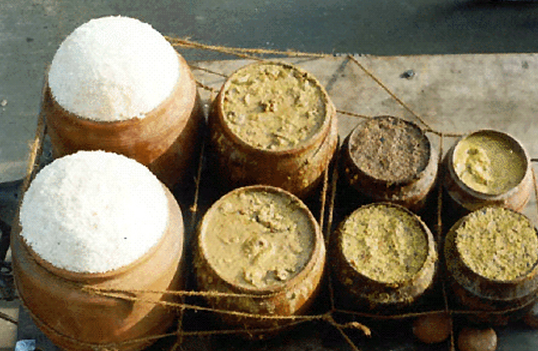Jagannath Puri: temple cuisine
(Created page with "{| class="wikitable" |- |colspan="0"|<div style="font-size:100%"> This is a collection of articles archived for the excellence of their content.<br/>You can help by converting...") |
|||
| Line 9: | Line 9: | ||
|} | |} | ||
| − | [[Category:India | | + | [[Category:India |P]] |
| − | [[Category: | + | [[Category:Religion |P]] |
| − | [[Category:Cuisine | | + | [[Category:Cuisine |P]] |
| − | + | ||
=Lord Jagannath Temple in Odisha: Cuisine = | =Lord Jagannath Temple in Odisha: Cuisine = | ||
Revision as of 23:04, 9 March 2015
This is a collection of articles archived for the excellence of their content. Readers will be able to edit existing articles and post new articles directly |
Lord Jagannath Temple in Odisha: Cuisine
The 11th century Lord Jagannath Temple in Puri is one of the ‘char dhams’ of India. The temple has a beautiful sacred sight of Lord Jagannath’s statue, along with those of his siblings Subhadra and Balabhadra. Everyday, the temple deities are offered ‘bhoga’ (food offered to God) six times. It is said that the temple’s kitchen is the largest in the world, with a total 56 varieties of naivedhyas or prasada, cooked daily.
The food cooked here is pure vegetarian and is prepared without onion and garlic. Also, it is mandated that the food be cooked only in earthen pots and vessels placed on top of each other. An interesting fact is that the vessel placed on top is cooked first and the one at the bottom in the end.
The temple is famous for offering food in a pot known as KothoBhoga or Abadha. Also, Khua, which is cooked by boiling pure milk on low temperature for many hours to make it a soft custard; grated sweetened coconut, coconut water, Khai (a dish made up of fresh milk, cheese and sugar) are used as prasada. Besides this the deity is offered a morning meal known as SakalaDhupa. This is then followed with BhogaMandapaBhoga – a supplementary to breakfast – and then a mid-day meal called MadhyannaDhupa.
